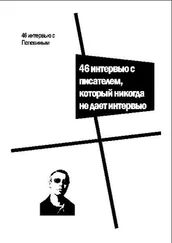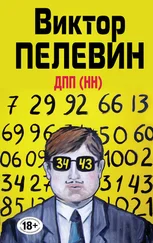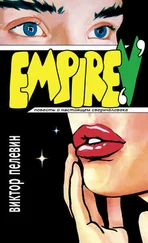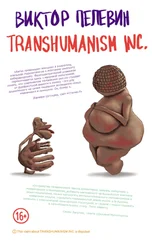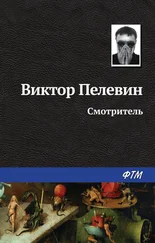Виктор Пелевин - Babylon
Здесь есть возможность читать онлайн «Виктор Пелевин - Babylon» весь текст электронной книги совершенно бесплатно (целиком полную версию без сокращений). В некоторых случаях можно слушать аудио, скачать через торрент в формате fb2 и присутствует краткое содержание. Жанр: Современная проза, на английском языке. Описание произведения, (предисловие) а так же отзывы посетителей доступны на портале библиотеки ЛибКат.
- Название:Babylon
- Автор:
- Жанр:
- Год:неизвестен
- ISBN:нет данных
- Рейтинг книги:5 / 5. Голосов: 1
-
Избранное:Добавить в избранное
- Отзывы:
-
Ваша оценка:
- 100
- 1
- 2
- 3
- 4
- 5
Babylon: краткое содержание, описание и аннотация
Предлагаем к чтению аннотацию, описание, краткое содержание или предисловие (зависит от того, что написал сам автор книги «Babylon»). Если вы не нашли необходимую информацию о книге — напишите в комментариях, мы постараемся отыскать её.
Babylon — читать онлайн бесплатно полную книгу (весь текст) целиком
Ниже представлен текст книги, разбитый по страницам. Система сохранения места последней прочитанной страницы, позволяет с удобством читать онлайн бесплатно книгу «Babylon», без необходимости каждый раз заново искать на чём Вы остановились. Поставьте закладку, и сможете в любой момент перейти на страницу, на которой закончили чтение.
Интервал:
Закладка:
‘What’s that you have up there?’ Tatarsky asked, nodding in the direction of the wall.
There was a reproduction of a Stalinist poster hanging at the spot he indicated: ponderous red banners with yellow tassels and the blue-looking Moscow university building visible in the gaps between them. The poster was obviously twenty years or thereabouts older than Tatarsky, but the print was absolutely fresh.
‘That? A young guy who used to work for us before you did that on the computer,’ answered Khanin. ‘You see, there used to be a hammer and sickle there, and a star, but he took them out and put in Coca-Cola and Coke instead.’
‘Yes, I see,’ Tatarsky said, amazed. ‘But you can’t see it at first - they’re exactly the same yellow colour.’
‘If you look closely you’ll see it. I used to have the poster over my desk, but the other guys started getting awkward about it. Malyuta took offence for the flag and Seryozha took offence for Coca-Cola. In the end I had to bring it home.’
‘Malyuta took offence?’ Tatarsky asked in surprise ‘Have you seen what he put up over his own desk yesterday?’
‘Not yet.’
‘"Every pogrom has its programme, every brand has its bend".’
‘So what?’
Tatarsky suddenly realised that Khanin really didn’t see anything strange in such sentiments. And what was more, he suddenly stopped seeing anything strange in them himself.
‘I didn’t understand what it meant: "Every brand has its bend".’
‘Bend. That’s the way we translate the expression "brand essence". That’s to say, the concentrated expression of a comprehensive image policy. For instance, the Marlboro bend or essence is a country of real men. The Parliament essence is jazz, and so on. You mean you didn’t know that?’
‘No, of course I knew that. What d’you take me for? It’s just a very odd kind of translation.’
‘What’s to be done about it?’ said Khanin. "This is Asia.’
Tatarsky got up from the table. ‘Where’s your toilet,’ he asked.
‘First door after the kitchen.’
When he stepped into the toilet, Tatarsky’s gaze was confronted by a photograph of a diamond necklace with the text:
‘De Beers. Diamonds are for ever’, hanging on the wall facing the door. This rather threw him off balance and for several seconds he couldn’t recall why he was there. When he remembered, he tore off a sheet of toilet paper and wrote on it:
1) Brand essence (bend). Include in all concepts in place of ‘psychological crystallisation’.
2) Parliament with tanks on the bridge. Instead of ‘the smoke of the Motherland’’ - ‘All that jazz’.
Tucking the piece of paper into his breast pocket and flushing the toilet conspiratorially, he went back to the kitchen and walked right up to the Coca-Cola red banners.
‘It’s quite incredible,’ he said. ‘Looks like it said "Coke" on this flag from the very beginning.’
‘So what did you expect? What’s so surprising about that? D’you know what the Spanish for "advertising" is?’ Khanin hiccupped: ‘"Propaganda." So you and me are ideological workers, if you hadn’t realised it yet. Propagandists and agitators. I used to work in ideology, as it happens. At Komsomol Central Committee level. All my friends are bankers now; I’m the only one… I tell you, I didn’t have to reconstruct myself at all. It used to be: "The individual is nothing, the collective is everything.’’ and now it’s: "Image is nothing, thirst is everything." Agitprop’s immortal. It’s only the words that change.’
Tatarsky felt an uneasy presentiment.
‘Listen.’ he said, ‘you didn’t happen to speak at party personnel meetings outside Moscow, did you?’
‘Yes, I did,’ said Khanin. ‘Why?’
‘In Firsanovka?’
‘Yes, in Firsanovka.’
‘So that’s it,’ said Tatarsky, gulping down his vodka. ‘All the time I had this feeling your face was familiar, but I couldn’t remember where I’d seen it. Only you didn’t have a beard then.’
‘You mean you used to go to Firsanovka too?’ Khanin asked in delighted surprise.
‘Only once,’ Tatarsky answered. ‘You came out on the platform with such a hangover I thought you were going to puke the moment you opened your mouth…’
‘Hey, take it easy in front of the wife… Although you’re right: the main reason we went out there was to drink. Golden days!’
‘And so what happened? You came out with this great speech,’ Tatarsky continued. ‘I was studying at the Literary Institute at the time, and it really upset me. I felt jealous, because I realised I would never learn to manipulate words like that. No sense to it whatsoever, it just blew me away; all at once everything was absolutely clear. That’s to say, what the speaker - you - was trying to say wasn’t clear, because he didn’t really want to say anything, but everything in life was clear. I suppose that’s what those party personnel meetings were held for. I sat down to write a sonnet that evening, but I just got drunk instead.’
‘What was I speaking about, d’you remember?’ Khanin asked. He obviously found reminiscing pleasant.
‘Something or other to do with the twenty-seventh Party congress and its significance.’
Khanin cleared his throat: ‘I think there is no need to explain to you Komsomol activists,’ he said in a loud, well-trained voice, ‘why the decision of our Party’s twenty-seventh congress are regarded as not merely significant, but epoch-making. Nonetheless, the methodological distinction between these two concepts occasions misunderstanding even among propagandists and agitators. After all, the propagandists and agitators are the builders of our tomorrow, and they should not be unclear in any way about the plan for the future that they have to build…’
He hiccupped loudly and lost the thread of his speech.
‘That’s it, that’s it,’ said Tatarsky. ‘I recognise you now all right. The most amazing thing is that you actually did spend an entire hour explaining the methodological difference between "significant" and "epoch-making", and I understood every single sentence perfectly. But if I tried to understand any two sentences together, it was like running my head against a brick wall… There was just no way. And there was no way I could repeat it in my own words. But then, on the other hand… What’s "Just do it" supposed to mean? And what’s the methodological difference between "Just do it" and "Just be"?’
‘Exactly what I’m getting at,’ said Khanin, pouring the vodka. "S exactly the same.’
‘What are you men doing drinking away like that?’ put in Liza, speaking for the first time. ‘You might at least propose a toast.’
‘OK, let’s have a toast,’ said Khanin, and he hiccupped again. ‘Only, you know, one that’s not only significant, but epoch-making as well. Komsomol member to party member, you follow?’
Tatarsky held on to the table as he rose to his feet. He looked at the poster and thought for a second before raising his glass and speaking:
‘Comrades! Let us drown the Russian bourgeoisie in a flood of images!’
CHAPTER 9. The Babylonian Stamp
On arriving home, Tatarsky felt the kind of energy rush he hadn’t experienced in ages. Khanin’s metamorphosis had positioned the entire recent past in such a strange perspective it simply had to be followed by something miraculous. Pondering on what he might amuse himself with, Tatarsky strode restively around the flat several times until he remembered the acid tab he had bought in the Poor Folk bar. It was still lying in the drawer of the desk - in all that time he’d not had any reason to swallow it, and anyway he’d been afraid.
He went over to the desk, took the lilac-coloured stamp out of the drawer and looked at it carefully. The face with the pointed beard smirked up at him; the stranger was wearing an odd kind of hat, something between a helmet and a dunce’s cap with a very narrow brim. ‘Wears a pointed cap,’ thought Tatarsky; ‘probably a jester, then. That means it’ll be fun.’ Without giving it any more thought, he tossed the tab into his mouth, ground it up between his teeth and swallowed down the small ball of soft fibres. Then he lay down on the divan and waited.
Читать дальшеИнтервал:
Закладка:
Похожие книги на «Babylon»
Представляем Вашему вниманию похожие книги на «Babylon» списком для выбора. Мы отобрали схожую по названию и смыслу литературу в надежде предоставить читателям больше вариантов отыскать новые, интересные, ещё непрочитанные произведения.
Обсуждение, отзывы о книге «Babylon» и просто собственные мнения читателей. Оставьте ваши комментарии, напишите, что Вы думаете о произведении, его смысле или главных героях. Укажите что конкретно понравилось, а что нет, и почему Вы так считаете.

